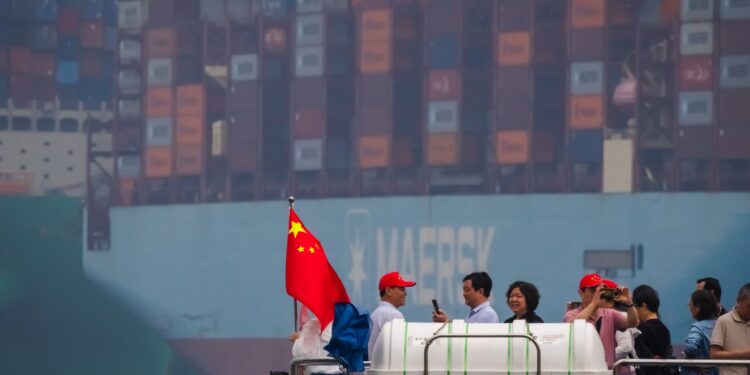Chinese exporters are intensifying their efforts to avoid customs duties imposed by US President Donald Trump by charging their goods across third countries to hide their real origin, according to the British Financial Times.
According to the newspaper, promotional advertisements for “counterfeiting the country of origin” appear on Chinese social media platforms, at a time when the flow of Chinese goods raised the anxiety of neighboring countries, which are afraid to become the starting points of trade for the United States.
The increasing use of this tactic confirms the concerns of the exports that the new customs duties imposed by Trump on Chinese goods, which amount to 145%, will deprive them of reaching one of their most important markets, the newspaper says.
https://www.youtube.com/watch?v=fo_4-1KKUO0
High fees however
“The customs duties are very high. (But) we can sell goods to neighboring countries, to sell them to the United States, and thus the customs duties decrease,” the British newspaper quoted a sellers in the southern Chongshan city of Chongs.
American trade laws require that goods be subject to a “fundamental transformation” in a country, and this usually includes treatment or manufacturing that adds great value, to be eligible to consider its origin that the country for the purposes of customs tariffs.
But ads on social media platforms, such as “Xiaohongshu”, exposes exporters to ship goods to countries such as Malaysia, where a new establishment certificate will be issued to it and then sent to the United States, the newspaper said.
Countries measures to verify the origin of the products
Last month, the South Korean Customs Authority announced the seizure of foreign products worth 29.5 billion options (21 million dollars) carrying false origins in the first quarter of this year, most of which are coming from China, almost all heading to the United States.
The authority said in a statement: “We are witnessing a sharp increase in the recent cases in which our country is used as a side way to pass the products to avoid different definitions and restrictions due to the changes in the commercial policy of the American government … We found many cases in which Chinese products were formed as Korean.”
Last month, the Vietnamese Ministry of Industry and Trade also called on local commercial associations, exporters and manufacturers to tighten the verification of the origin of raw materials and entered goods, and to prevent the issuance of false certificates.
https://www.youtube.com/watch?v=ta0cwe20oam
The Thai Foreign Trade Ministry also revealed last month to measures to tighten the verification of origins on the products heading to the United States to prevent evading customs duties.
A sales delegate in two logistin companies reported that they can charge the goods to the port of Claang in Malaysia, where they transport the goods to local containers and change their signs and packaging.
A sales representative, who refused to reveal their identity, said that the two companies have links to factories in Malaysia that can help in issuing certificates of origin, the newspaper says.
The Malaysian Ministry of Investment, Trade and Industry stated that the country “is committed to a categorical commitment to preserving the integrity of international trade practices” and “is an attempt to circumvent the tariffs through wrong or false advertisements, whether it relates to the value of the goods or their origin, a serious crime.”
She added: “If these reports are proven true, we will investigate and take the necessary measures, in cooperation with our gaps and the American authorities.”
https://www.youtube.com/watch?v=tvdddkulfnk
Two ways to circumvent
A consultant providing advice to companies on border trade said that “washing origin” was one of the two main methods used to avoid the new Trump fees, while the other method was mixing expensive goods with cheaper commodities, so that exporters could claim a total cost of lower shipments.
The owner of a consumer commodity manufacturing company in the southern China city of Dongan said that two local industrial associations offered this method to brokers who offered them solutions to circumvent customs tariffs.



